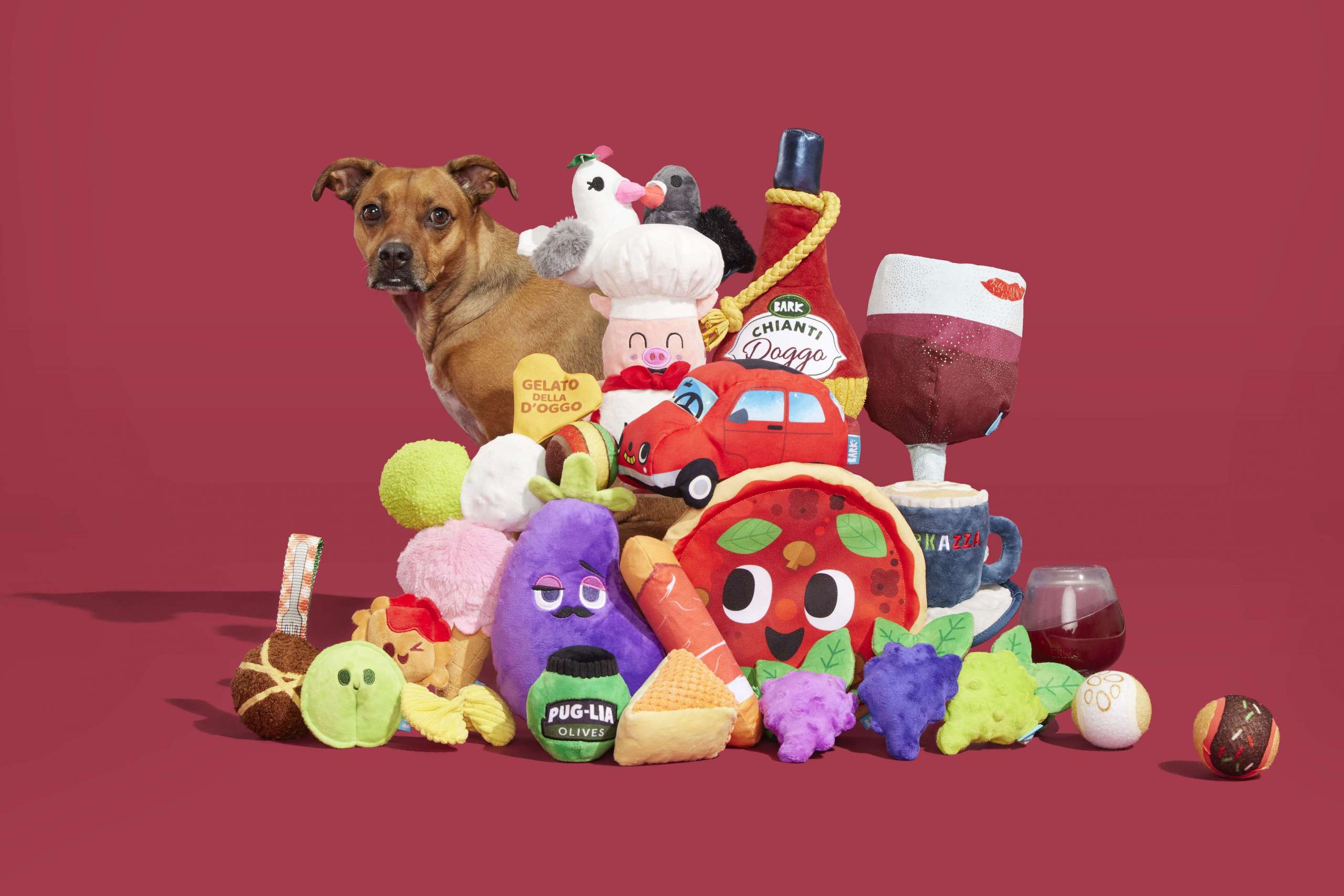For Pups With Short Attention Spans…
On average, you can expect your Labrador Retriever to live between 10 and 12 years, about the average dog lifespan. Some factors affecting lifespan include lifestyle, genetics, and even coat color, with chocolate labs living shorter lives than golden and black labs. With an energetic breed like the Labrador Retriever, healthy habits, good diet, and safety precautions can help maximize your dog’s life.
With your Lab by your side, there’s no telling the adventures you’ll find. As spirited, affectionate, and easy-going dogs, Labs make the perfect companions for life. Of course, dog lives are significantly shorter than human lives, and while it’s always sad to think about parting with our four-legged friends, it’s helpful to know a little bit about the Labrador lifespan.
The average lifespan of a Labrador retriever is 10 to 12 years.1
A Lab’s lifespan is about the average lifespan of all dog breeds. Golden retrievers and German shepherds can live for about 10 to 12 years as well. A decade with these dogs can make for a lifetime of memories. Looking to learn a little bit more? This article will explore the various factors that can impact a Lab’s lifespan, as well as what you can do to help your Lab live a long life.
What Can Affect a Labrador’s Lifespan?
A dog’s life can be unpredictable. From their reaction to a squirrel on the sidewalk to their particular personalities, you can never know exactly what to expect. Additionally, there are several variables to consider when determining a Lab’s life expectancy.
While veterinary knowledge and research continue to expand what’s possible for our pets, there’s still a lot we can’t know for sure. That said, you can expect any of the following factors to potentially affect your dog breed’s lifespan.


Genetics
What’s imprinted on your dog’s DNA at birth can have a major impact on what happens throughout their lives. Genes represent the blueprint for biological development, informing cells when to do what, and determining what biological traits will be expressed.
From the color of their coat to their temperament, genetics are passed on from parent to pup, over generations. They can also be indicators of a potential health issue.
There are two primary ways of identifying your dog’s genetic risk factors, including:
- Parentage documents – Your pup’s parents’ medical history, if you have access to it, might offer a clue about hereditary risk factors. Certain conditions may have genetic correlations, and by determining which, if any, run in your dog’s family, you may learn about their potential for developing said health issue. It may not be an exact method, but it’s not unlike what doctors might do to understand your own predisposition for hereditary diseases.
- Genetic testing – Today, modern veterinary medicine allows for a range of genetic testing on dogs that can pinpoint genes associated with various illnesses. It’s crucial to note that carrying a gene does not mean your pup will contract any medical condition. Genes and illnesses may have some correlations, but there isn’t a one-to-one relationship.2
Notably, a recent study may point to a correlation between coat color and life expectancy. A Chocolate Lab is reported to live a shorter life on average than a Golden and Black Lab.3 While these findings are not fully understood, the coat-color correlation is thought to match up with other genetic predispositions regarding immune system response that could lead to a shorter lifespan.


Environment
If genetics is “nature,” then the environment is “nurture.” While your dog’s DNA is essentially a genetic lottery, decided before your Labrador puppy is even born, these are factors that you have at least some control over.
Common environmental factors for Labrador health (and most other animal health) include:
- Allergens
- Smoke
- Mold
- Pollution
- Weather
Labradors are more specifically at risk of:
- Roaming and accidents – Labradors were once the prized retrievers of hard-working fishermen. They’d wade through cold waters, fetching fish or pulling nets, assisting where they were needed. That all gave them pretty big heads. Today, even the most spoiled Labrador may get the itch for adventure, running out of the yard and into trouble.
- Insufficient stimulation – Hardworking dogs need a lot of stimulation to stay healthy both mentally and physically. From exercise needs to general attention, your Lab might have some high demands that aren’t always easy to cater to. Unfortunately, if they’re not being kept engaged and entertained, Labs can suffer from excessive anxiety and other conditions that could risk their health.
Diet and Nutrition
Labs have healthy appetites—at least healthy if you opt for nutritious and satisfying food. Labs can also have unhealthy appetites, begging for table scraps, sneaking off with half-eaten snacks, or chowing down on some trash if the lid is left open. It may be gross, but to your Labrador puppy, it could look like a four-course meal.
Concerned about what your pup’s eating? Besides opting for high-quality food, you can prioritize their nutritional health by watching out for a health problem like:
- Overeating – Most pups will keep chowing down until they run out of food. Then they’ll ask for some more. Obesity is a risk for dogs of all shapes, sizes, and ages, and while we all love a chunky pup, it can lead to compounding health risks and a shortened Labrador lifespan. Be certain to portion out your pup’s food precisely or opt for a meal plan that offers perfectly-portioned food.
- Nutritional gaps – Dogs have very specific dietary needs. Depending on the dog breed and build of your pup, they will have different macro and micro nutritional needs. All dog food manufacturers aren’t as thorough about their formulas, and while ingredients and nutrition facts are listed on the package, it’s not always easy to find a food that provides everything you need.


Keeping up with your dog’s dietary needs can be more difficult than just pouring out some kibble twice a day. As a dog ages, their portions and nutritional requirements change. As mid-sized dogs, Labs also need plenty of food as puppies to ensure proper growth and biological development. A long life starts with early dietary planning.
Always do your own research when picking the perfect food for your dog, the options can be overwhelming, but if you need a place to start, try BARK Food for Labs! Pro Tip: Get 25% off with code 25FOOD and free shipping!
What Major Health Problems Do Labs Have?
Labradors come out looking pretty good when accounting for major physical health risks. Originally bred to be strong, sturdy, and hardworking, these dogs are anything but sickly. Unfortunately, their rugged build doesn’t make them totally immune to minor and major health problems.
Curious about the conditions to watch out for? Consider the following Labrador health issues:
- Hip dysplasia – A hereditary health problem common to many breeds, Labs are particularly vulnerable to hip dysplasia. This condition results in improper function of the hip joints, leading to mobility problems, pain, and decreased activity. There are treatments for hip dysplasia, including physical therapy and supplements, but the condition is typically degenerative.4
- Heart conditions – Heart defects and diseases affect a large number of Labradors every year. Depending on when a diagnosis occurs and the severity of the condition, there are several courses of treatment including medication and surgery.
- Exercise-induced collapse – Also known as EIC, this dangerous genetic condition typically affects younger Labs.5 Dogs with a predisposition for this condition can immediately collapse following physical activity. There are often no warning signs for this condition, though DNA testing could help determine your dog’s risk factor.
Additionally, various cancers are a top health concern for Labs, though diagnosis and treatment can be difficult. When considering various health conditions, it’s imperative to not only think about your dog’s health but also their quality of life. When consulting with your vet, consider asking what treatments can contribute best to your Lab’s comfort and happiness, especially as they reach their golden years.


Tips For A Longer, Healthier Life for Your Lab
You know what to look out for, but what steps can you take to positively impact your Lab’s life expectancy? There’s no magic formula to a long and happy dog life, but there are some simple steps you can take to potentially maximize your time with your pup.
Besides literally spending as many hours as you can at your Lab’s side, you can keep them in top condition by prioritizing general care (including bathing and grooming), exercise, and a healthy diet.
Wondering what else you can do to keep your Lab around for as long as possible? Explore these quick tips:
- Outdoor safety – Labs are big, agile, and very smart, making them excellent escape artists. Yes, Labs occasionally like to run off, chasing small mammals or just following a smell wherever it may go. As much fun as that sounds, you shouldn’t ever let your dog wander alone. Large fences or electronic invisible fences are ideal for keeping your Lab out of harm’s way.
- Vet checkups – From heartworm medication to vaccinations, regular vet appointments can provide the preventative care your Lab needs to stay healthy. Even if your dog doesn’t need any medication, book a year wellness checkup to ensure everything is A-okay with your Lab. The exam is typically short and relatively painless for your pooch.
- ID and microchips – Despite your very best efforts to keep your Lab in sight, sometimes these wily pups just get away from you. On those occasions, you’ll be glad to have an ID tag and a microchip implant. These tools can help get your Lab back to you quickly and smoothly.


BARK: For A Lifetime With Your Lab
Labrador retrievers are unparalleled when it comes to companionship. They stick to their owners like velcro, and as long as your Lab lives, you can expect them by your side, eager from a game of fetch or an affectionate pet. If you’re looking for a way to make every moment count with your Lab, it might be time to check out BARK.
Considering a gift for your Lab? Make it a monthly celebration with BARK Box. It’s the subscription box just for dogs, bringing treats, toys, and chews straight to your door. There’s always more to explore at BARK! Visit us today to start your journey.
Sources:
AKC. Labrador Retriever. https://www.akc.org/dog-breeds/labrador-retriever/
National Geographic. Why chocolate labs don’t live as long as other retrievers. https://www.nationalgeographic.com/animals/article/chocolate-lab-dogs-color-live-lifespan-animals
Science News for Students. What we can — and can’t — learn from our pets’ DNA.
https://www.sciencenewsforstudents.org/article/what-we-can-learn-our-pets-dna-genetic-testing
The Labrador Site. Labrador Retriever Life Span – How Long Do Labs Live?.
AKC. Hip Dysplasia.
Pet MD. Labrador Retriever.





